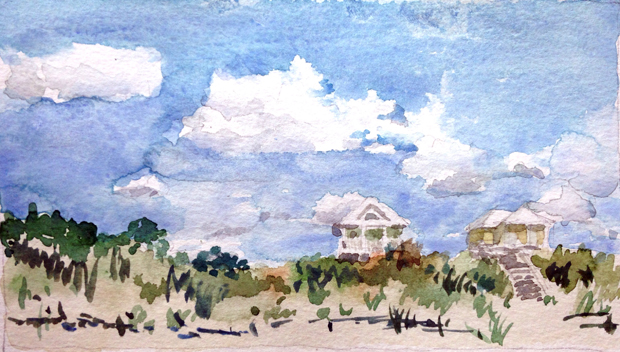It’s been a busy week of writing deadlines, so I’m taking a shortcut today to share this wonderful article, “Why Do We Experience Awe?” from last Sunday’s New York Times. I love their suggestion, based on years of social psychological research, for how we can feel more connected to each other and the world around us. It’s simple: experience awe on a daily basis.
“ . . . awe is the ultimate “collective” emotion, for it motivates people to do things that enhance the greater good. Through many activities that give us goose bumps — collective rituals, celebration, music and dance, religious gatherings and worship — awe might help shift our focus from our narrow self-interest to the interests of the group to which we belong.”
The world we’ve created for ourselves is so complicated, fast-paced, hyper competitive, and stressful. It’s a profound relief to encounter a couple of scientists who’ve taken the time to test, and prove, this simple hypothesis:
“We found that awe helps bind us to others, motivating us to act in collaborative ways that enable strong groups and cohesive communities. . . . Participants experiencing awe, more so than those participants experiencing emotions like pride or amusement, cooperated more, shared more resources and sacrificed more for others — all of which are behaviors necessary for our collective life.”
Once they had positive results from their simple experiments, they went on to delve into why awe works this way.
“One answer is that awe imbues people with a different sense of themselves, one that is smaller, more humble and part of something larger. . . . In the great balancing act of our social lives, between the gratification of self-interest and a concern for others, fleeting experiences of awe redefine the self in terms of the collective, and orient our actions toward the needs of those around us.”
Well, of course! I know I’ve experienced that sense of smallness, of insignificance, in a counter-intuitively positive way. Not that I don’t matter, that I’m a speck on the bottom of Creation’s shoe. But that I am in reality just a tiny part of this vast, living, breathing world, so what will I do with, as the Buddhists say, my “precious human life?”
The authors of this article ask whether our culture today isn’t “awe-deprived.”
“Adults spend more and more time working and commuting and less time outdoors and with other people. Camping trips, picnics and midnight skies are forgone in favor of working weekends and late at night.”
How can we fast-paced moderns feel awe? Fortunately, there are many possibilities. Live performances work well, such as music and theater. I know I feel it frequently at performances of the Maryland State Boychoir. Other ways: visual art, poetry, exploring outdoors, camping, stargazing. Even city-dwellers with no access to wild nature can experience awe. After all, the sun rises and sets everywhere on earth every day. Every city has parks where people can picnic or just lie in the grass watching the clouds form into animal shapes.
What are the ways we deprive ourselves of feeling awe? Commuting, endless meetings, hours in front of computer screens, standardized testing in schools, drills and memorization, our general getting-ahead focus. As a result of our awe-deprivation, the authors argue, over the last 50 years people have shifted from a community orientation to become more individualistic, self-focused, materialistic, and disconnected from others.
That computer screen isn’t all bad, though. The study did find that people who watched a quick video of sublime scenes in nature were more likely to be generous or helpful to another person. The authors suggest actively courting goose-bump experiences every day, “be it in looking at trees, night skies, patterns of wind on water or the quotidian nobility of others.” I’ve long had the intuition that being conscious of awe and wonder is one way back to a connection with the natural world. I’m very encouraged to learn that awe is a ticket to far more reconnection than I realized.

